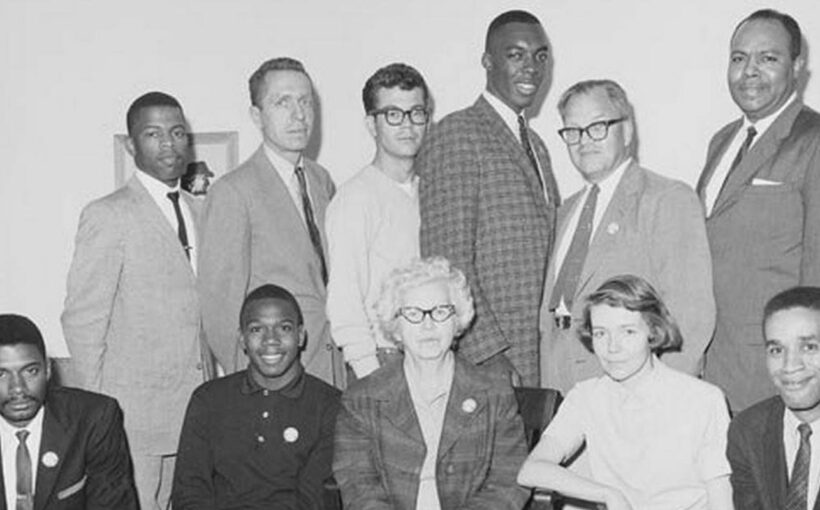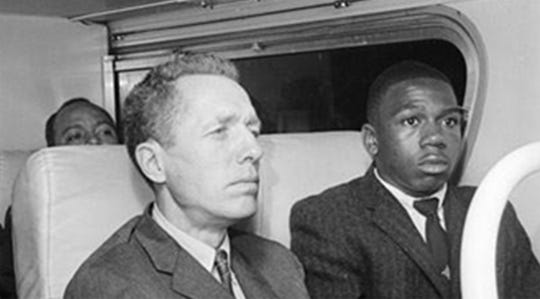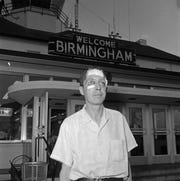NASHVILLE, Tenn. – In May 1961, 13 men and women boarded a bus in Washington, D.C., bound for New Orleans to celebrate the seventh anniversary of the U.S. Supreme Court’s landmark Brown v. Board of Educationdecision that desegregated public schools.
Their mission was twofold, with the second goal being to challenge the laws regarding segregated interstate travel in the South.
They did so, but not without fear in the face of violence. The buses they rode on were bombed. They were beaten and jailed, but their spirits were not broken.
More than 400 people would eventually participate in the movement known as the Freedom Rides. These are the stories of the 13 people — students, a pastor and retired educators among them — who started it all.
In-depth: Could the Freedom Riders make a difference against today’s racism?
James L. Farmer Jr. (1920-1999)
Raised by a professor who taught divinity at Howard University, James Farmer Jr. was a pacifist who sought to achieve racial justice through nonviolent activism.
Often a target of racial violence, Farmer helped to shape the Civil Rights Movement when he launched The Freedom Rides to challenge the efforts to block the desegregation of interstate busing.
“We were told that the racists, the segregationists, would go to any extent to hold the line on segregation in interstate travel. So when we began the ride I think all of us were prepared for as much violence as could be thrown at us. We were prepared for the possibility of death,” Farmer said in a 1985 interview.
Freedom Riders Charles Person, right, and James Peck on the bus in 1961, with James Farmer, the head of CORE, in the background. (Photo: Johnson Publishing Company)
The national director and co-founder of the first Congress of Racial Equality (CORE) chapter in 1942, Farmer set the foundation for the Civil Rights and Voting Rights acts in the mid-1960s.
He spent 41 days in Mississippi jails. One of the most memorable moments of that time, he said, was when those jailed alongside him in steel and concrete cells with straw-filled mattresses sang freedom songs together, despite being threatened by guards.
He would go on to serve as assistant secretary of health, education and welfare under President Nixon. In 1998, Farmer was awarded the Presidential Medal of Freedom.
A rumor, then a gunshot: How ‘Black Wall Street’ was decimated in the Tulsa Race Massacre
““When we left Atlanta for Birmingham on May 14, 1961 …we knew that we were in for a very rough reception upon arrival.””
James Peck (1914-1993)
James Peck was born into a wealthy family in New York City. He dropped out of Harvard University to become a full-time activist and was the only person to participate in both the Freedom Rides and Journey of Reconciliation.
“By encouraging and supporting actions such as that in Montgomery, we who adhere to the principles of nonviolence hope to hasten complete abolition of segregation within our social system,” Peck wrote in CORE’s introduction to Martin Luther King’s 1957 article, “Our Struggle: The Journey of Montgomery.”
Freedom Rider James Peck leaving the airport in Birmingham, Alabama, to board a flight for New Orleans. (Photo: Alabama Department of Archives and History. Donated by Alabama Media Group. Photo by Norman Dean, Birmingham News)
Genevieve Hughes (1932-2012)
One of the three women to participate in the early days of the Freedom Rides, Genevieve Hughes quit her job as a stockbroker to become the field secretary of CORE and civil rights activist.
“I figured Southern women should be represented to the South and the nation would realize all Southern people don’t think alike,” she said of her reason to join CORE.
Members of the Congress of Racial Equality gather in Washington with a map of a route they plan to take to test segregation in bus terminal restaurants and rest rooms in the South on May 4, 1961. From left are Edward Blankenheim, Tucson, Arizona; James Farmer, New York City; Genevieve Hughes, Chevy Chase, Maryland; the Rev. B. Elton Cox, High Point, North Carolina, and Henry Thomas, St. Augustine, Florida. (Photo: Byron Rollins, AP)
She, along with John Lewis and Al Bigelow sustained injuries when several white men attacked them at a bus terminal in Rock Hill, South Carolina, on May 10, 1961.
Texas Republicans’ voting bill led to a dramatic walkout: What we know about the fight over elections
Joe Perkins (1933-1976)
Joe Perkins was the first Freedom Rider arrested for sitting at a whites-only shoeshine stand in Charlotte, North Carolina, according to PBS. After spending two days in jail, he caught up with the group and led the Freedom Riders on the Greyhound bus, which was burned in Anniston, Alabama.
Source: Read Full Article



